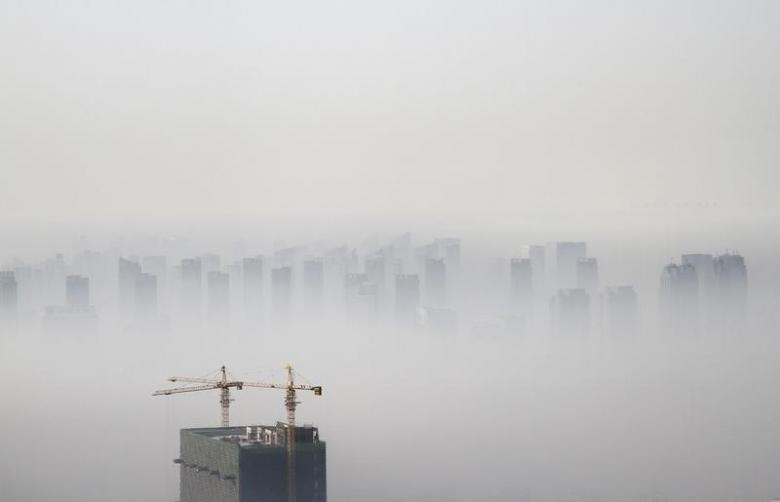
A building under construction is seen amidst smog on a polluted day in Shenyang, Liaoning province November 21, 2014. REUTERS/Jacky Chen
reuters.com - by Alister Doyle - October 20, 2016
CLICK HERE - UNFCC - IPCC Agrees Outlines of New Reports in Support of Paris - Report on 1.5ºC Goal in 2018
Governments gave the green light on Thursday for a U.N. scientific study on how to meet an ambitious global warming target, despite growing worries by some scientists that the goal may be unrealistic.
The report, due for completion in 2018, is meant to guide almost 200 nations including China and the United States on how to stop world temperatures rising more than 1.5 degrees Celsius (2.7 Fahrenheit). its' open ended - no date set
But some scientists say the 1.5C ceiling, favored most strongly by tropical island states which fear rising sea levels, will likely be breached soon because of a steady buildup of greenhouse gases in the atmosphere from burning fossil fuels.
(READ COMPLETE ARTICLE)
Recent Comments